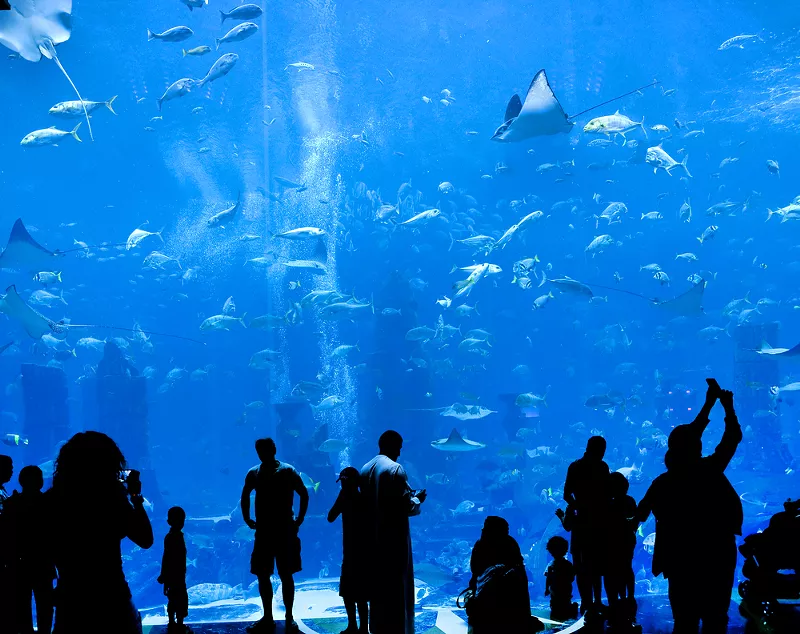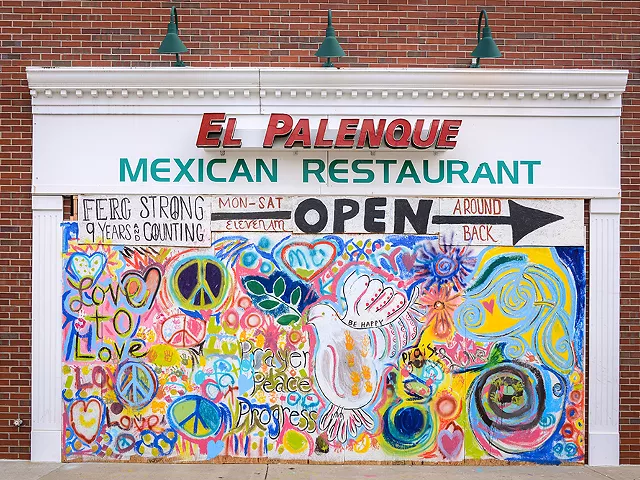At a time when public sentiment against keeping animals in captivity is at an all-time high — and scientific awareness of the complex, emotional lives of aquatic animals is growing by the day — it is baffling that developers intend to build a massive new aquarium in St. Louis’ Union Station.
The St. Louis Aquarium’s astounding $45 million price tag is matched only by its astounding disconnect from public opinion, which is trending toward compassion: A 2015 Gallup poll found that one-third of Americans believe that other animals have the same right as humans to be free from exploitation, and more than half are concerned about the treatment of animals in zoos and aquariums.
This increased awareness has been driven in part by the 2013 documentary Blackfish, which taught millions that marine animals suffer terribly when forced to spend their lives confined to a cramped tank.Everything about life in an aquarium is artificial, from the way animals are grouped together to oxygen saturation levels. These artificial conditions are difficult to maintain, and the consequences of inevitable human error and mechanical malfunction are often deadly: Numerous incidents of mass death have occurred at aquarium exhibits across North America. Just last month, at Michigan's John Ball Zoo, 21 animals suffocated when a circuit breaker tripped, cutting off oxygen to their tanks. At the Calgary Zoo, 41 stingrays died of unknown causes only three months after the aquarium exhibit opened. And last year at the Brookfield Zoo in Illinois, 54 animals died in a touch-tank exhibit — the second mass die-off at the aquarium in less than 10 years.
Catching animals to fill these aquatic prisons is also a deadly business. Up to 90 percent of tropical fish who end up in public and home aquariums are caught illegally with cyanide, which stuns some target fish and kills others and can destroy entire ecosystems. Former aquarium operators have also been convicted of illegally importing protected species to stock their tanks, thereby depleting natural populations.
During transport, up to 80 percent of certain fish species die from stress. Accidents also occur — last year, a shark who had been captured off the Florida coast died in a crash while being driven all the way to New York to be displayed in an aquarium.
In their natural environments, sea animals often socialize, migrate and swim long distances. They are also highly intelligent: Giant manta rays can recognize themselves in the mirror. Sharks teach each other how to solve complex problems. Octopuses are so neurologically complex that each of their tentacles has not just an individual brain but also an individual personality.
Marine animals in artificial tanks are denied all the rich sensory experiences of their natural environment and forced to endure a lifetime of captivity and frustration. They are subjected to constant stressors, including noisy crowds. Just as human prisoners suffer during prolonged incarceration, so do imprisoned animals.
The St. Louis Aquarium will irrevocably damage the lives of thousands of sentient beings. It will also teach children that an animal's well-being is less important than a human's momentary amusement.
And lest you fall for the argument — long trotted out by places like SeaWorld — that exposure to captive marine life makes visitors more cognizant of the importance of preserving animals in their natural habitat, empirical evidence proves otherwise. Most visitors spend only a few seconds at each exhibit and don't even read the information on the accompanying sign. And a study by researchers at Emory University found that "there is no compelling or even particularly suggestive evidence for the claim that … aquariums promote attitude change, education, and interest in conservation in visitors."
The St. Louis Aquarium is bad for our city and bad for animals. Rather than endorsing a cruel industry, let's promote compassion by refusing to keep marine wildlife in captivity.
Laura Shields is a corporate liaison in People for the Ethical Treatment of Animals’ (PETA) Corporate Affairs Department; www.PETA.org. She earned her doctorate in American Studies from Saint Louis University. She lives in St. Louis.
At the RFT, we welcome well-reasoned essays on topics of local interest. Contact [email protected] if you've got something to say.






